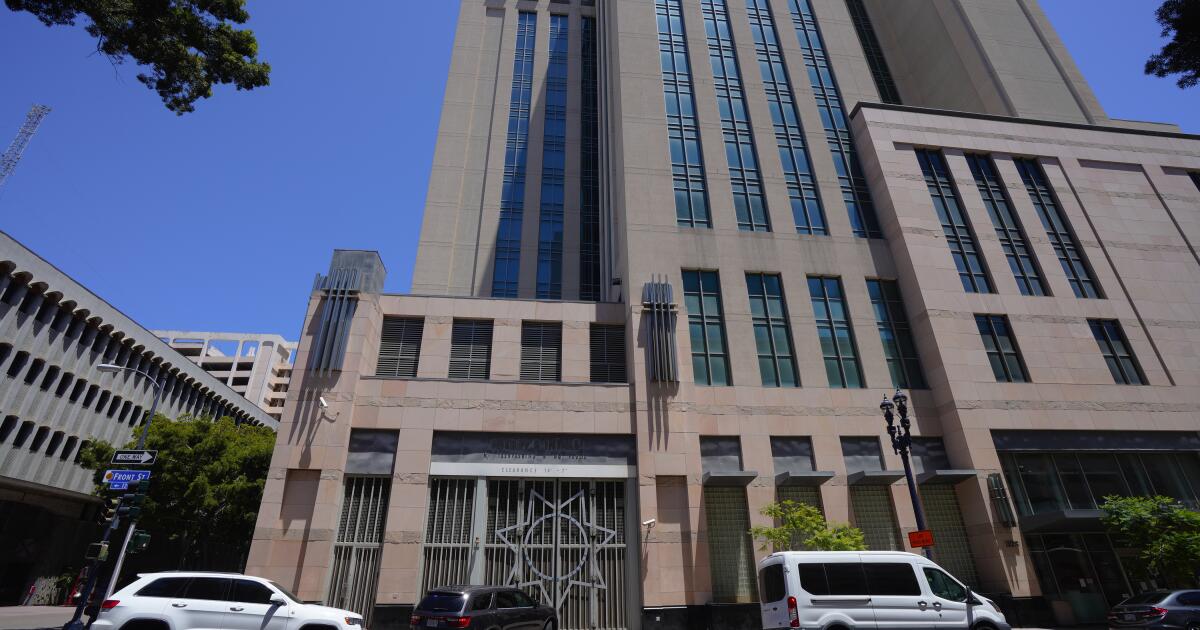Judge hasn’t decided whether sheriff should testify in jail trial


Sheriff Kelly Martinez is not avoiding a proposed deposition in the federal lawsuit challenging his administration of San Diego County jails, an attorney defending the sheriff’s department in the class-action lawsuit said Wednesday.
Rather, it was the county’s outside counsel who objected to the idea of Martinez answering questions under oath, the attorney said.
“The sheriff has not refused to appear,” attorney Elizabeth Pappy told U.S. Magistrate Judge David D. Leshner during a nearly hour-long hearing to discuss whether Martinez should being required to sit for a deposition. “You can blame me for that. I made this decision.
The judge did not issue a ruling Wednesday.
After listening to arguments from Pappy and the attorney representing those incarcerated in San Diego County jails, Leshner said he would submit the case. The decision could be published in a few days or even weeks.
Attorney Gay Grunfeld requested the court order in a court filing last month, saying she and her colleagues had fundamental questions that other Sheriff’s Department leaders or staff were unable to answer fully.
“Only the sheriff knows how the department will set priorities over the next year and the next five years to change or not change the situation in the jails,” Grunfeld said during the hearing. “Only she can answer our questions about reform efforts, if any. »
But Pappy said there’s nothing Martinez can add that the plaintiffs’ attorneys haven’t already learned or asked their subordinates.
“The idea that the sheriff is going to provide such a deep level of knowledge is false,” Pappy said. “She has no personal knowledge of anything… She delegates responsibilities not to one level of people, but to multiple levels.” »
Grunfeld is one of a handful of civil rights attorneys suing San Diego County over the Sheriff’s Department’s handling of its seven-facility jail system, which has one of the highest death rates of State.
The lawsuit seeks to force the sheriff to improve facilities and operations within the jails to ensure that people in custody receive constitutionally required care, such as food, health care and medical equipment for people disabled if necessary.
The county has recorded five in-custody deaths so far this year and more than 200 in the past 20 years. It has also paid tens of millions of dollars to the families of people who died or were injured in prison over the past five years.
The plaintiffs also seek to remove Dr. Peter Freedland from Correctional Healthcare Partners, the county’s last remaining contracted medical provider.
That interview will likely be scheduled after June 1, when the agreement being negotiated between San Diego County and Freedland’s company is expected to go into effect, Pappy said during the hearing.
Legal discovery – the process by which two parties in a trial exchange testimony and documents before trial – moves forward in the case.
A trial is unlikely to take place until next year.
California Daily Newspapers




